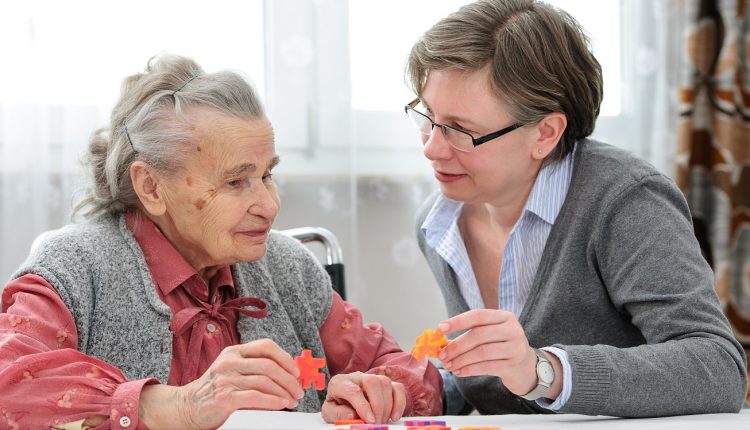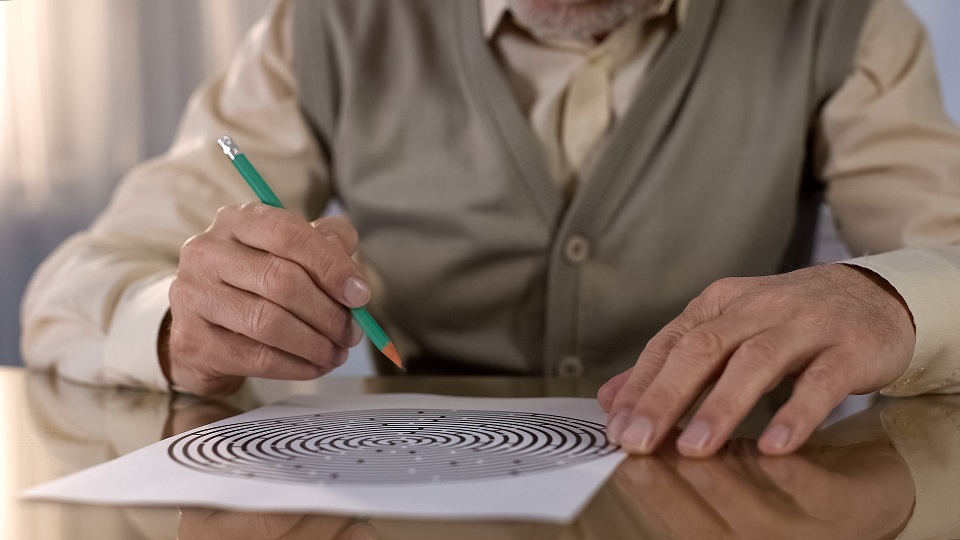
Brain Training for Alzheimer’s Patients
Alzheimer’s disease is a debilitating condition that affects millions of people worldwide. As the disease progresses, individuals may experience significant cognitive decline, including memory loss, difficulty with language, and impaired judgment. Although there is no cure for Alzheimer’s, various strategies can help slow the progression of cognitive decline, including brain training.
Brain training refers to exercises and activities that improve cognitive function. These exercises can range from simple memory games to complex problem-solving tasks. In recent years, brain games have gained popularity as a potential strategy for preventing or slowing the progression of Alzheimer’s disease. However, there is still much debate among researchers and healthcare professionals about the efficacy of brain training for Alzheimer’s patients.
In this article, we will explore the effects of brain training for people with Alzheimer’s, including cognitive stimulation’s potential benefits and limitations.
Contents
The Benefits of Brain Training for Alzheimer’s Patients
Several studies have investigated the effects of brain training on people with Alzheimer’s disease. While these studies’ results are inconsistent, some research suggests that cognitive stimulation can help slow the progression of cognitive decline and improve the quality of life for Alzheimer’s patients.
One study published in the Journal of the American Geriatrics Society found that a cognitive stimulation program improved cognitive function and quality of life for individuals with Alzheimer’s. The program consisted of 10 weekly sessions of group-based cognitive stimulation, including reminiscence therapy, word games, and music therapy. The results showed that participants who received the cognitive stimulation program significantly improved cognitive function and quality of life compared to those who did not.
Another study published in the Journal of Alzheimer’s Disease found that a computerized cognitive training program improved cognitive function and neural efficiency in individuals with mild cognitive impairment, often a precursor to Alzheimer’s disease. The program consisted of daily exercises to improve memory, attention, and problem-solving skills. The results showed that participants who completed the program had significant improvements in cognitive function and neural efficiency compared to those who did not meet the program.
These studies suggest that brain training can positively affect cognitive function and quality of life for Alzheimer’s patients. However, it is important to note that the benefits of cognitive training may vary depending on the type and intensity of cognitive stimulation and the severity of the disease.

Do Brain Games Help with Alzheimer’s?
The underlying neurological damage caused by Alzheimer’s cannot be reversed by brain games. However, some studies suggest cognitive training can improve cognitive function and quality of life for Alzheimer’s patients, particularly in the early stages of the disease.
Cognitive training programs can help people with Alzheimer’s disease compensate for their cognitive deficits and improve their ability to perform daily tasks. For example, memory training programs can help individuals with Alzheimer’s disease improve their ability to remember important information, such as names and appointments. Cognitive stimulation therapy can help individuals with Alzheimer’s disease maintain social engagement and improve their mood. Computer-based cognitive training programs can help individuals with Alzheimer’s disease improve their attention, processing speed, and problem-solving skills.
Cognitive Training for Dementia and Alzheimer’s Patients
Several types of brain training programs have been shown to be effective in improving cognitive function and quality of life for individuals with dementia and Alzheimer’s disease. Here are some examples:
Memory Training
Memory impairment is a common symptom of Alzheimer’s disease and other forms of dementia. The programs can help individuals with dementia improve their ability to recall information and better manage daily tasks. Some memory training programs involve exercises such as memorizing lists, recalling details from stories or pictures and practicing mental associations to aid memory retrieval.
Cognitive Stimulation Therapy
Group-based cognitive stimulation therapy (CST) improves cognitive function and quality of life for individuals with dementia. Activities include word games, discussion groups, and creative activities and are typically delivered over several weeks. Studies have shown that CST can improve cognitive function, mood, and quality of life in individuals with dementia.
Physical Exercise
Dementia and Alzheimer’s patients benefit from regular physical exercise. Exercise programs can help improve cardiovascular health, reduce inflammation, and promote the growth of new brain cells. In addition, exercise can help improve mood and reduce stress, which can have positive effects on cognitive function.
Read more: Cardio Exercises for the Elderly to Boost Memory.
Music Therapy
Music therapy involves using music to promote relaxation, reduce stress, and improve mood. Studies have shown that music therapy can have positive effects on cognitive function, memory, and mood in individuals with dementia and Alzheimer’s disease. Music therapy for Alzheimer’s can involve activities such as singing, playing instruments, and listening to music.
Computer-Based Cognitive Training
Computer-based cognitive training programs target specific cognitive skills, such as memory, attention, and problem-solving, through interactive exercises. Depending on the individual’s needs and abilities, these programs can be accessed at home or in a clinic. Alzheimer’s and mild cognitive impairment patients can benefit from computer-based cognitive training.

Limitations of Brain Training for Alzheimer’s Patients
While brain training may benefit Alzheimer’s patients, there are also some limitations. Cognitive improvements may not be sustained over time. In individuals with Alzheimer’s disease, cognitive function may decline despite cognitive stimulation, especially in the advanced stages.
Another limitation is that not all cognitive training programs are equally effective. Some programs may not be designed specifically for individuals with Alzheimer’s disease, which can limit their efficacy. Furthermore, some programs can be too challenging or too simple for some people, which prevents them from engaging in cognitive stimulation.
Furthermore, it is important to consider the potential risks of cognitive stimulation for individuals with Alzheimer’s disease. Some programs may be too demanding or stressful for certain individuals, which can lead to frustration or agitation. Adapting the cognitive stimulation program to the individual’s needs is therefore crucial.
Final Words
Brain training may be a promising strategy for improving cognitive function and quality of life for individuals with Alzheimer’s. However, it will take more research to fully understand the benefits and limitations of cognitive stimulation for Alzheimer’s patients. To determine the most appropriate and effective strategies for managing Alzheimer’s disease, consult with a healthcare professional.
One memory that stands out is participating in a brain training program designed specifically for Alzheimer’s patients.
I remember feeling nervous initially, unsure if I could keep up with the exercises and challenges. However, I quickly realized that the program was tailored to my abilities and that the trainers were patient and supportive.
Over time, I noticed improvements in my memory, attention, and problem-solving abilities. I also enjoyed the social interaction with other participants in the program and the sense of accomplishment when I could complete a challenging task.
Glad to hear.
Thanks for sharing this informative article!
How does memory training work exactly? I find the idea of forcing someone with Alzheimer’s to memorize some list absurd.
Don’t force them, and it’s best to ask a professional for a memory training program.